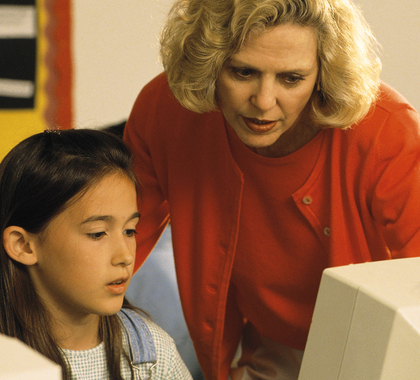School authorities in California sent a letter to homeschool parents telling them homeschooling is illegal, which is not true.
The Homeschool Legal Defense Association (HSLDA) reports all of its members in the San Benito High School District (SBHSD) received a letter in July from SBHSD officials that read in part, “[U]nder California Law, a home school is not a private school, nor is it a lawful alternative to public school.”
California law requires parents withdrawing their child from public school in favor of homeschooling receive a private school exemption. Parents can establish their homeschools as private schools by filing an affidavit with the Superintendent of Public Instruction of California.
HSLDA President Michael Smith reports on the organization’s website, “The private school exemption has been used by California homeschoolers since the revival of the movement in the late ’70s.”
The California Court of Appeals for the Second Appellate District reaffirmed the legality of homeschooling in the state in 2008 in Jonathan L., et al. v. The Superior Court of Los Angeles County, ruling, “California statutes permit home schooling as a species of private school education.”
HSLDA responded to SBHSD in a letter “explaining that homeschooling is indeed a legal exemption to public school attendance pursuant to the private-school exemption,” Smith wrote.
As of press time, SBHSD had not pursued further action against the homeschoolers.
Common Occurrence
Debbie Schwarzer, a member of the Home School Association of California legal team, says California government agencies often challenge homeschool parents and always end up backing down.
“We get a dozen stories every year from families whose decision to homeschool has been challenged by this district or that one or, even worse, where a family has been referred to the [district attorney] for truancy prosecution, and we send a letter informing the district that, in fact, the matter was settled in 2008 by an appellate opinion,” Schwarzer said.
“We often have to remind the district officials that they don’t have the powers that they think, such as approving schools, reviewing curriculum, etc.,” said Schwarzer. “And every single time, they back down, either by stopping their hassling of a family that is withdrawing a child or ending the investigation or prosecution.”
Fearing Loss of Control, Money
Smith says some of the continual backlash against homeschoolers stems from the public school system’s desire to maintain control and funding.
“The homeschool and private school movement of the 1970s was really the first backlash against the concept of public education, so the public educators had come to believe that the children were basically theirs,” Smith said. “Now they’re losing the kids, which means they lose two things: They lose money because they get average daily attendance money, and they lose control.
“There is a big distrust of parents among some people within the public school establishment, so their position is that they believe they need to regulate all education because these children’s education is really up to them,” Smith said. “The mockery of that whole thing is that they really need to focus on who they are responsible for—and that’s the kids that are in the public schools—because quite frankly, there are a lot more problems in those schools in terms of education than you would find in a homeschool or private school program.”
Schwarzer says control and money are likely at the root of the districts’ continued interference with homeschool families.
“My personal view is that districts object mostly to the withdrawal of children, and that could be motivated by several factors,” Schwarzer said. “If the child were receiving special services, the school may regret the loss of funding. They may also believe that no one other than themselves is qualified to provide those services and doubt that the parents have either the qualifications or the legal right. But they do have the legal right and may meet their child’s needs as they determine.”
Elizabeth BeShears ([email protected]) writes from Trussville, Alabama.




